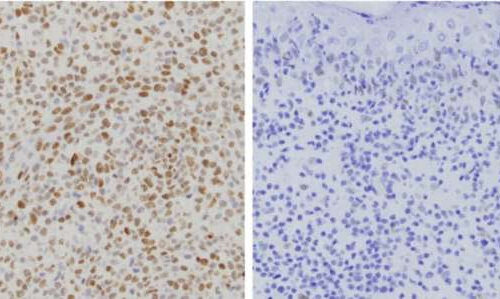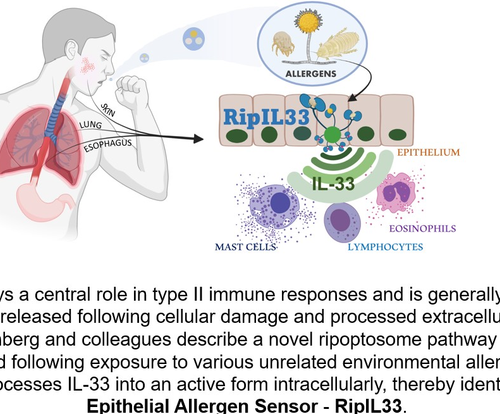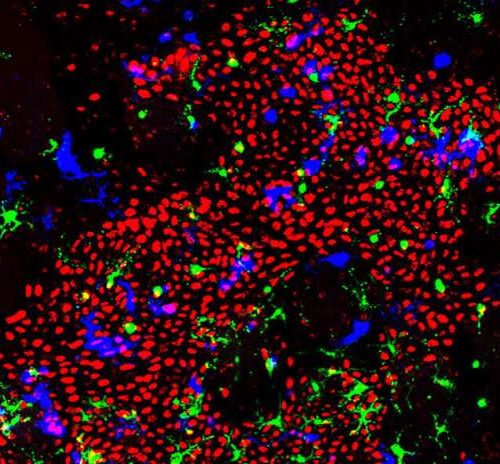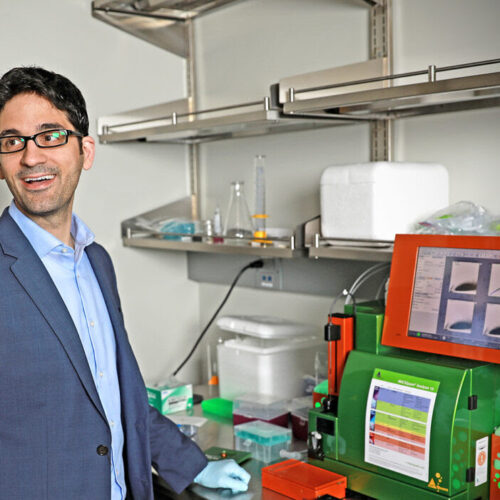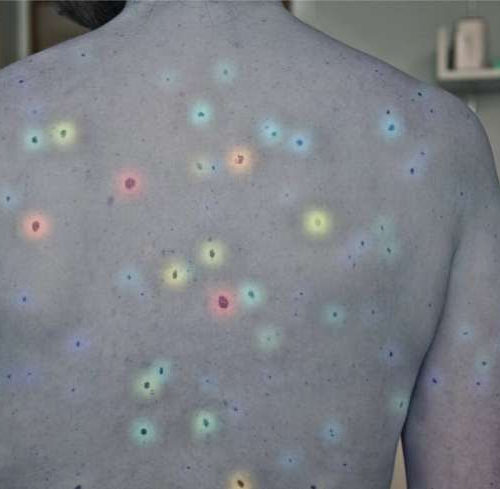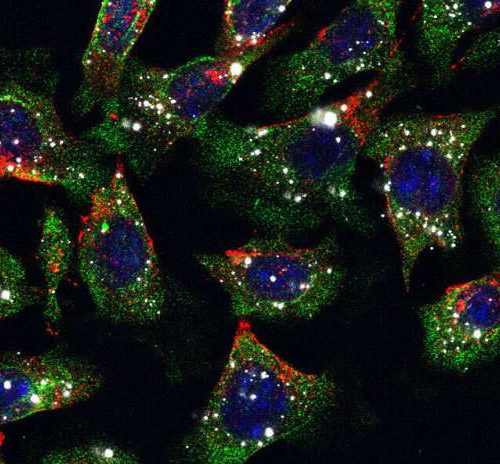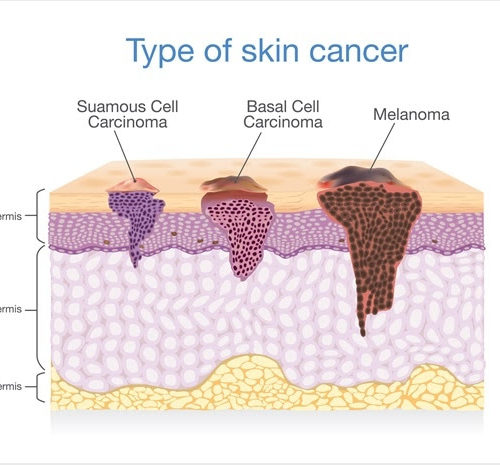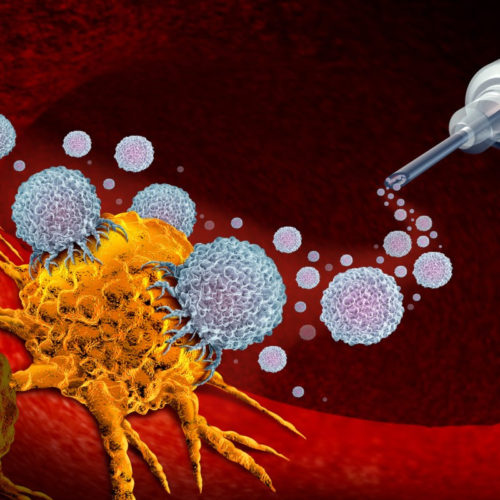by Will Doss, Northwestern University Tumor skin biopsy from two different patients. One patient who has a JAK2 gene fusion is positive for pSTAT3 staining, a marker of activated JAK-STAT signaling (left). Another patient who lacks the JAK2 gene fusion is negative for pSTAT3 (right). The patient with the JAK2 fusion is predicted to have good...
Tag: <span>skin cancer</span>
Research provides new insight into fundamental workings of the immune system in response to therapy to treat skin cancer
UNIVERSITY OF BIRMINGHAM New research led by the University of Birmingham suggests that skin cancer patients could have a better prognosis if their T cells send messages from five specific genes in their immune response to drugs given to treat the disease. The research, carried out in mice, cells in the laboratory, and using publicly available data...
Exposing a cellular double-agent that helps skin cancer take hold
by Yale University Immunofluorescent staining of chronic UV exposed mouse skin showing clonally expanding mutant skin cells (keratinocytes, red) and immune cells (Langerhans cells, green, and T cells, blue). Credit: Yale University Yale researchers have identified a cellular spy that tricks certain immune cells into helping potentially deadly skin cancer to reproduce. The discovery, reported in the journal Proceedings...
Skin cancer: New treatments improve prognosis, but prevention is still essential
by Johannes Angerer, Medical University of Vienna Credit: Unsplash/CC0 Public Domain Immunotherapy has revolutionized the treatment of inoperable, metastasized skin cancer. More than 50% of patients are still alive more than five years after treatment, whereas, 10 years ago, this figure was not even 5%. The experts from the Comprehensive Cancer Center (CCC) of MedUni Vienna...
‘Tiny first responders’ use powers for good against skin cancer
by University of Queensland Credit: Unsplash/CC0 Public Domain Researchers investigating a group of microscopic cells have discovered they can put the brakes on the rapid development of melanoma lesions. A team at the University of Queensland and collaborators from WEHI and Peter MacCallum Cancer Centre have taken a close look at the Group 2 innate lymphoid cells (ILC2) which...
a deadly form of skin cancer — melanoma — alters the metabolism of healthy tissues elsewhere in the body
By Talia Ogliore May 13, 2021 A new study with zebrafish shows that a deadly form of skin cancer — melanoma — alters the metabolism of healthy tissues elsewhere in the body. The research from Washington University in St. Louis suggests that these other tissues could potentially be targeted to help treat cancer. Patti “Tumors rely on a constant...
Identifying ‘ugly ducklings’ to catch skin cancer earlier
by Harvard University The researchers used their deep learning neural network to assign an “ugly duckling score” to each lesion based on how much it differed from other lesions on the same patient’s skin, identifying those most likely to be cancerous. Credit: Wyss Institute at Harvard University Melanoma is by far the deadliest form of skin cancer,...
Researchers develop injection to treat skin cancer
by William Weir, Yale School of Engineering and Applied Science Bioadhesive nanoparticles (white) after being taken up by skin cancer tumor cells during in virtro culture. Credit: Julia Lewis Yale researchers are developing a skin cancer treatment that involves injecting nanoparticles into the tumor, killing cancer cells with a two-pronged approach, as a potential alternative to surgery....
DermaSensors: The Future of Skin Cancer Detection
By Benedette Cuffari, M.Sc. Reviewed by Sophia Coveney, B.Sc. The early diagnosis of most types of skin cancer is directly related to improved survival rates. The DermaSensor device is a revolutionary, non-invasive and spectroscopy-based tool that can assist clinicians in early skin cancer diagnosis. An overview of skin cancer As the most common type of cancer to affect individuals...
Personalized skin cancer vaccine demonstrates long-term effectiveness
By Rich Haridy January 21, 2021 Researchers reported durable immune responses to cancer cells up to four years after receiving a personalized vaccine lightsource/Depositphotos VIEW 1 IMAGES New research published in the journal Nature is outlining the long-term efficacy of a novel type of cancer vaccine. The research followed eight skin cancer patients and discovered the experimental treatment offers durable and...

